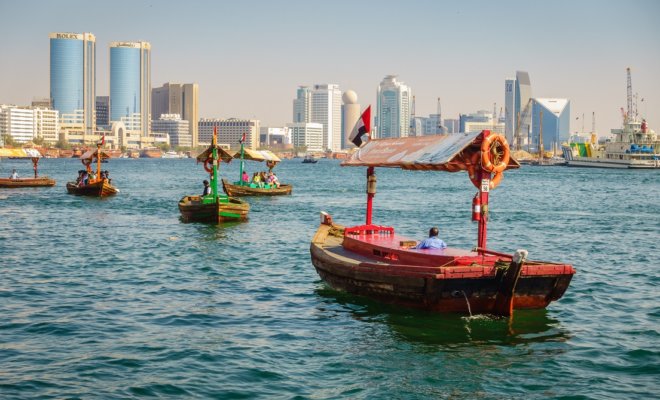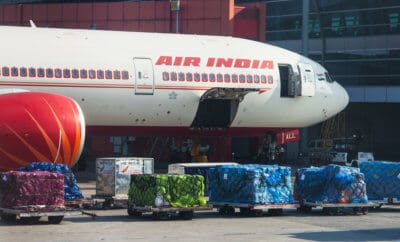Business
Introduction of VAT to Make Holidays in UAE More Expensive

Dubai Creek
Bigstock
A 5 per cent value added tax will be charged for most goods and services, including hotels, taxis, jewelry, restaurants and sightseeing tours, from 2018.
Indian tourists planning a holiday to the United Arab Emirates (UAE) will soon have to shell out more money as a trip to the Gulf country is set to get costlier. The UAE government will start charging a 5 per cent value added tax (VAT) from Jan. 1, 2018.
Tourists will have to spend more money for most goods and services, including hotels, taxis, jewelry, restaurants and sightseeing. The country, which has always lured foreign workers and tourists owing to its tax-free lifestyle, is levying VAT to boost its economy.
“The UAE is considering levying value added tax from January 2018. The rate of VAT will be 5 per cent. VAT will provide the UAE with a new source of income which will be continued to be utilized to provide high-quality public services. It will also help government move towards its vision of reducing dependence on oil and other hydrocarbons as a source of revenue,” a statement from the UAE government said earlier this month.
Dubai is a popular destination among Indian tourists for leisure travel and jewelry shopping. Around 1.8 crore Indians travel to the UAE every year, with India being the top source market for visitors to Dubai. As many as 1,679,000 visitors from India visited Dubai in 2017, while the figure was 1,406,000 in 2016, marking an increase of 19 per cent, according to the performance report of Dubai Tourism 2017. India was the top source market for Dubai, followed by Saudi Arabia, United Kingdom, Oman, China and the United States.
The levying of VAT will result in an increased tour cost to UAE by 6 to 7 per cent due to the 5 per cent VAT and the compliance cost that businesses will incur, the Times of India reported, quoting Anil Kalsi of Delhi-based Ambe World Travels.
VAT will be charged on dining out on all kinds of restaurants as well as eateries, including fast food outlets, and restaurants offering Asian, Continental, Arabic, Chinese, and other cuisines. Other goods and services for which VAT will be charged include electronic items, clothes, shoes, cosmetic products, cinema and theme park tickets, hotel rents, and gold jewelry.
The costs will increase even for those who made bookings in advance. “Even if we had confirmed bookings earlier for any service, 5% VAT will be applicable on services rendered in UAE from January 1, 2018,” a mail circulated among tour agents in India by a leading travel distributor said, reported TOI. “We are in the process of sending amended invoice with 5% VAT for services already confirmed and invoiced. We request you to inform your guests in advance,” the report added.
Other Gulf countries are also expected to follow the footsteps of UAE and implement VAT in the coming years. In Saudi Arabia, VAT will come into effect from Jan.1, 2018, at a rate of 5 per cent on a majority of transactions in goods and services, and with a limited number of exemptions. However, the silver lining for tourists traveling to Saudi Arabia is that a mechanism to return the VAT to tourists is under process, and so, it will not be applicable at the start of 2018, the General Authority of Zakat and Tax (GAZT) announced on Dec.24, Khaleej Times reported.
The new tax will not only affect tourists, but also the citizens of UAE, who fear that it may take their cost of living a notch higher that it is now. People with below Dh5,000 income will have less impact because they are already aware about their income level and consume less, Naveen Sharma, the chairman of the Institute of Chartered Accountants of India (Dubai Chapter), told Khaleej Times. “The middle class will have the highest impact who are earning less than Dh30,000 because their food and other related costs will go up,” the report quoted him as saying.



